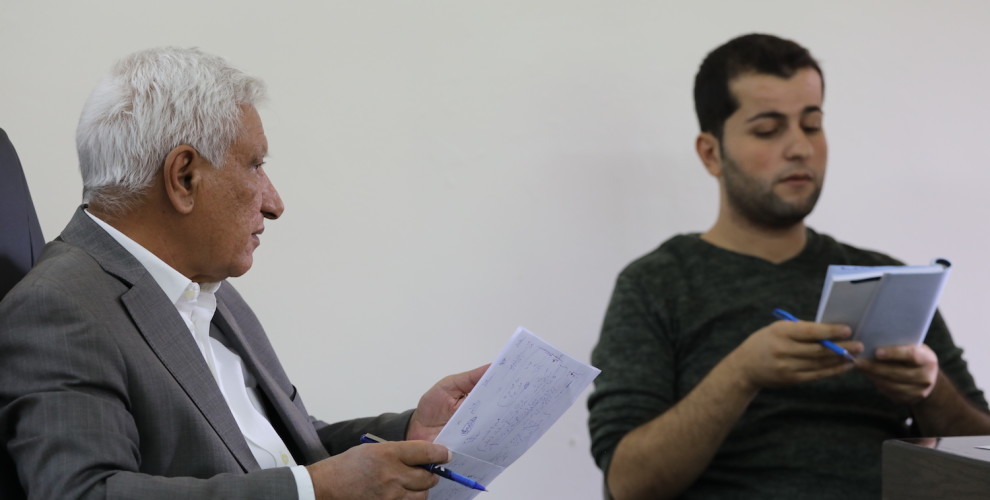One of the main pillars of the Autonomous Administration model implemented in Northern and Eastern Syria is education.
In the past few days universities in Rojava have organised an important conference to decide new rules and practices.
Qamishlo Rojava University was established on 4 July 2016 to respond to the region’s needs of human resources with scientific and academic qualifications specialized in different fields in this process of continuous changes and construction in the region.
- University is based on a new educational system linked and strongly connected to the principles of the Democratic Nation instead of the classical principles ruling in Syrian universities.
- those principles implemented at Rojava University: women liberation, an ecological society, promoting and building brotherhood and friendship between all nations and Syrian various components.
- Rojava University aims at establishing friendship and cooperation between students and teachers, thus rejecting a superiority and hierarchic approach. The aim is to promote and help students being not just well prepared but also democratic and liberated and thus determined to put their knowledge at the service of society and people.
- this reason, one of the main differences in the Rojava University has to do with the evaluation process of students. Even when compared to European universities it appears clearly the different and fresh approach.
- are evaluated not with the aim of separating ‘good’ students from ‘bad’ ones, but rather with the aim of forming good students. This means, in practice, that all students received a much closer attention and are followed through all phases of their learning.
- far the evaluation system has been based on tests, written and oral exams and projects.
- the most popular is the written test it is clear that this method reduces the relationship between teacher and student to something almost automatic (as it depends only on the performance of students in exams and tests).
- universities in Rojava and Northern and Eastern Syria have been debating about the best methods of evaluation (as indeed is happening to a certain degrees abroad) and have concluded that the traditional ones promote individualism, whereas the aim of the education institution should be promoting collectivism. No point in memorising concepts, what is important is the student’s ability to connect events and draw conclusions.
- evaluation system promoted by universities in Northern and Eastern Syria thus enable teachers to continue to closely watch up their students, helping them throughout the whole process of learning to end successfully their courses.
- course, education is free and available to all in Northern and Eastern Syria, thus enabling each and every person to enrole.
- in Rojava evaluate the student success according to the following criteria:
- - Comprehending information
- - Embodying the culture and morales of democratic modernity
- - Applying knowledge in a creative way and interpreting it into
practical projects
- - Behaving according to required duties and responsibilities.
- - Active participation in communal life.
